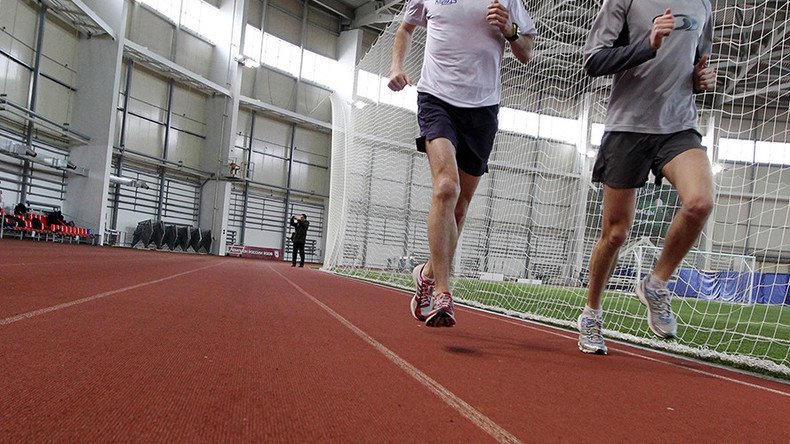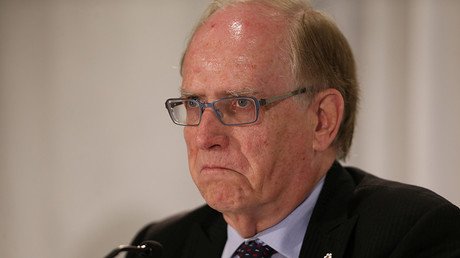WADA load of dope: ‘Political motives make Russia fall guy in Olympic war on drugs’

The International Olympic Committee has been uncomfortable with the McLaren report for several months now, says Ellis Cashmore, professor of sociology at Aston University, with focus on culture, media and sports.
WADA has initially recommended that the IOC, the International Paralympic Committee (IPC) and all international sporting federations exclude Russia from their competitions.
Additionally, the entire team of Russian Paralympians was also consequently banned from the Rio games without ever undergoing testing.
Now, the World Anti-Doping Agency admits that evidence provided by investigator Richard McLaren to support his accusations of Russia's state-sponsored doping in sport is “not sufficient to bring successful cases,” the IOC said.
RT: After months of headlines accusing the Russian government of state-sponsored doping, the IOC now says the evidence is not watertight. What do you make of it?
Ellis Cashmore: It is a most interesting development. It won’t be any news to viewers of [RT], we should point out, because I among others have been raising doubts about the substance of the McLaren report for a long time. The argument is clear enough, but what has never been clear is that McLaren had collaborating evidence. I’ve always said there is a question mark about that. So finally this seems to be something of a vindication.
'Insufficient evidence': #WADA admits McLaren’s ‘doping’ case against Russian athletes not cast-iron https://t.co/H5gSpl8eUW
— RT (@RT_com) 25 февраля 2017 г.
What’s happened here is that the IOC, that is, the International Olympic Committee, has sent an e-mail saying that the penalties that have been meted out to various Russian organizations and sports men and women of the past several months may not be as watertight as we had first imagined. In particular, a couple of the charges made by McLaren in his report – that is that there is an “institutional conspiracy” and state-sponsored doping – are not really borne out by the evidence that he produces, which may not be as airtight as first imagined. Thomas Bach, the President of the IOC, asked to examine the evidence that McLaren alleged to have several months ago. And for some unknown reason he wasn’t presented that evidence. The International Olympic Committee has been uncomfortable with the McLaren report for several months now. It appears that it has now chosen the time to make it public that they do not believe that the evidence is sufficient in itself to sustain the penalties.
RT: Despite this latest announcement, the IOC is still calling for a higher benchmark of testing against Russian athletes than the others. What does this tell us about their current thinking?
EC: I do think there is a political motive behind all this. Over the past several years that Russia has been accused, let’s not kid ourselves here, there have been several accusations, murmurs and suspicions that have been circulating for a number of years. But the McLaren report seemed to nail down this idea that there has been state sponsored doping. The politics of this and the commerce of this are relatively straightforward. That is that the world of sport has to keep its sponsors sweet. In other words, it has millions ploughed into – not just the Olympic Games and the World Cup, but practically every major sport in the world, by the likes of Toyota, McDonald’s and Visa – corporate sponsors, who do not wish their brands to be associated with drugs. So sports in general has felt under pressure to make a symbolic stand to say that they are making amends for the past evils of doping. They are going to do something about extirpating, and Russia has been the fall guy.
RT: If the IOC eventually concludes the evidence in the McLaren report wasn't sufficient, where would that leave Russia's clean athletes who were denied the chance of fulfilling their dreams? Would it be fair if they could get some compensation?
EC: We often neglect the human aspect of this. I particularly feel for the Paralympians, who’ve been excluded, and will be excluded in future, according to a recent proposal. They were excluded completely, remember, the entire team was kicked out without any testing at all.
Your question is a difficult one for me to answer because it is: where do they stand now? I just do not have an answer. I suppose they have the court of arbitration for sport and they can make their appeals there. But no one is going to compensate them for four years of studious preparation for a big event, which they will never be allowed to compete in… I think this is an interesting development for a number of reasons. Finally, we have official recognition that the McLaren report may not be all it’s cracked up to be. There may be a few loopholes in there, and shall we say instability of evidence that will persuade other organizations to start questioning it. Up to now most world governing organizations in sport have excepted lock, stock and barrel, the McLaren report and said: “There is this thing going on in Russia called ‘state-sponsored doping’, and until they become compliant with the rest of the world they stay out.” That has been the case so far. But this e-mail really does throw a spanner in the works now, because it would force sports – not just athletic, but all sports now – to reconsider whether to accept McLaren wholeheartedly and without the collaborating evidence that seems to be missing.
The statements, views and opinions expressed in this column are solely those of the author and do not necessarily represent those of RT.













